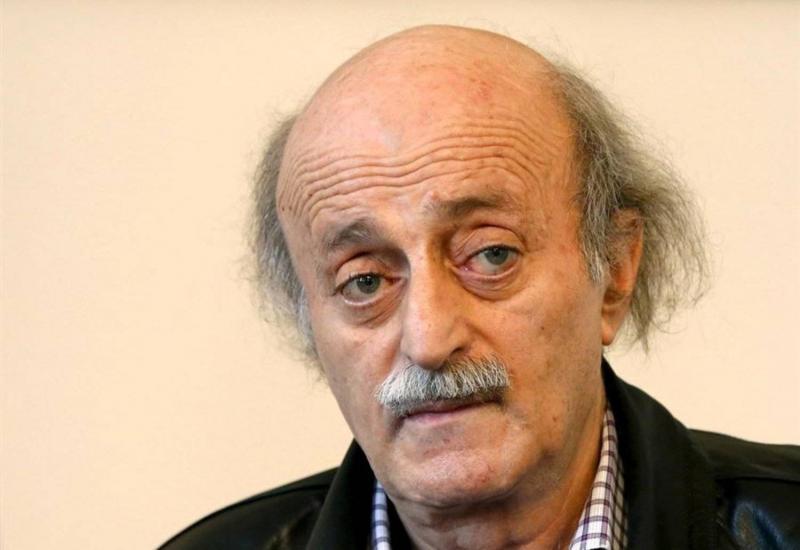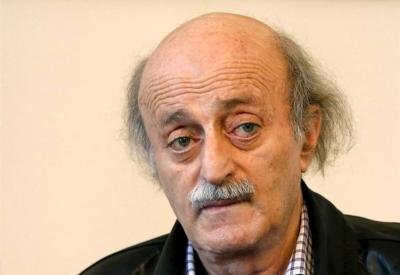The former president of the Progressive Socialist Party, Walid Jumblatt, emphasized the necessity of electing a president "to manage the affairs of the state." According to an article in the newspaper "Al-Akhbar," he stated, "For the past two years, we have been stagnant, waiting for an agreement among Christians. Personally, I have no particular stance on anyone. I am willing to proceed with whoever to fill the position; I have no problem supporting the election of Suleiman Franjieh, head of the Marada Movement, or anyone else. I know this may not be the stance of some members of the Democratic Gathering, but this is my position."
He added, "It is unreasonable for us to continue like this when everything has become a proxy. We did well to extend the term of the army commander, even though he is not yet capable of traveling due to the absence of a Chief of Staff, as the obstacle lies with the Minister of Defense. I have been informed that there were positive vibes in the past two days regarding this matter."
Jumblatt expressed that some recent "Christian rhetoric" around federalism and division does not intimidate him "because this has always been the same stance with no new developments." Concerning the recent dispute with the Future Movement regarding the case against Amal Shaaban, after she was relieved of her duties by Education Minister Abbas Halabi, Jumblatt regretted that "the Future Movement's position is one from the past. What the minister did is natural as there is an investigation into a corruption case involving millions of dollars. However, the problem is that Shaaban is a close associate of ambassador extraordinary Saad Hariri in Moscow," denying any contact with Hariri since the last parliamentary elections.
In another context, he indicated his support for Hamas by stating, "Palestine has been my cause since the days of Kamal Jumblatt; this is my natural position." He smiled sarcastically if reminded of the slogan "Lebanon First," as reported by "Al-Akhbar," stating, "The times have changed from the days we raised that ridiculous slogan during what is known as March 14." He praised "the heroes of Hamas who have defeated all military and security theories in the world, as well as Western and Israeli arrogance," citing impressions from "my teacher Walid Khalidi that Yehya Sinwar will be taught in military schools worldwide."
He noted, "No one can eradicate a people. I have received criticism from Arabs and Westerners because of my support for Hamas. I support Palestinian Hamas, not the Muslim Brotherhood. 80% of Palestinians are Muslim, and Hamas emerged from them. Should they change their religion?" He highlighted that "the October 7 operation coincided precisely with the fiftieth anniversary of the October 6, 1973 war when Arab armies invaded Israel. What happened half a century ago ended with a settlement at the expense of military victory. What is occurring today is very significant against Western and Israeli arrogance. Even if the war stops tomorrow, this will be just one round. Generations of Arabs and Westerners have re-discovered Palestine after we had sunk into endless negotiations. The two-state solution has died because there is no longer any land to establish a state on."
Jumblatt understood the principle of "uniting fronts" to distract Israel, which he deemed "great in Iraq and Syria," stating, "I agree with what the Houthis are doing. It is true that Yemenis are the only Arab people who have actively moved to support the Palestinians, but what is happening in the Red Sea does not weaken Israel nor lead to results." He explained that "the biggest loser from the obstruction of navigation in the Red Sea is Egypt. Regardless of our observations on Cairo's performance, it is not in our interest for a besieged Egypt to collapse today, surrounded by Israel, Libya, and Ethiopia, which has become an Israeli protectorate, extending to Somalia. The Americans do not care. What the Yemenis are doing forces major corporations to avoid the Suez Canal, weakening China, a friend to the Arabs, since a large part of its trade passes through this area. Additionally, it indirectly promotes an economic corridor project between the Middle East and hostile Europe and India at the expense of the Suez Canal. This is my opinion."
Jumblatt, who called at the beginning of the war for Lebanon not to get dragged into it, expressed his conviction that "Hezbollah and Iran do not want war, and their actions in the previous period indicate that. However, there are madmen in Israel today—a mad prime minister and mad generals. Therefore, it is impossible to predict the course of things. They have stated that the war will be long." He understood that "Hezbollah had no choice but to intervene to support Gaza. However, calling for neutrality in the battle while being in the midst of it is impossible because there should be a price for that." In this context, he confirmed that "coordination is ongoing with the party," adding that "relations with Iran are good. I accepted an invitation to dinner at the Iranian embassy a couple of days ago."




